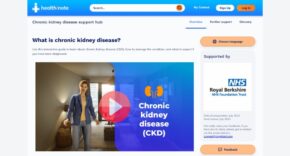The final phase of the Electronic Prescription Service (EPS) has been rolled out and prescription processing is becoming digital as a result.
Phase 41 is the latest improvement to EPS, which allows patient prescriptions to be sent via the more reliable system. By 2021, the electronic prescriptions service will save the NHS £300m. The EPS system saves both time and money as it decreases the amount of paper processing needed by pharmacists, GPs and NHS Business Services Authority.
The EPS Phase 4 will start from 18 November, and GP practices will start to use the TPP SystmOne system.
The whole process of getting a prescription from a GP or pharmacy remains unchanged. Patients without a nominated pharmacy will receive a paper copy of the prescription that contains a barcode. The pharmacy will then scan it and proceed to download the electronic prescription from the NHS Spine which is a secure NHS database.
There are already 32m patients who have a nominated pharmacy, and they won’t need a paper copy of their prescriptions as they will be sent electronically.
The electronic prescription service will make the whole process more efficient as well as faster. An electronic prescription is safer as it will eliminate duplicate prescriptions if a paper copy needs to be reprinted due to loss. More prescriptions can be tracked using the EPS Prescription Tracker.
Dr Ian Lowry, Director of Digital Medicines and Pharmacy at NHS Digital, said: “Every prescription that is sent electronically saves money for the NHS by increasing efficiency. The system is also safer and more secure, as prescriptions can’t be lost and clinicians can check their status online.
“Building upon the success of the existing service, this is a huge milestone to reach, and one which benefits patients, GPs, pharmacists and the NHS as a whole.”
Martin Kelsall, Director of Primary Care Services at the NHSBSA, said: “EPS has the potential to deliver significant benefits to patients while saving millions of pounds that could be re-invested in patient care. This is especially true for patients who get regular or repeat prescriptions, using Electronic Repeat Dispensing (eRD) – a process that allows regular medicines to be prescribed for suitable patients in batches of up to a year.
“Working collaboratively with NHS Digital, our EPS Support team has been working with primary care staff to maximise EPS use.
“As Phase 4 progresses, we’ll continue to work with prescribers and dispensers to support their use of EPS and eRD and promote best practice.”
Keith Ridge, the Chief Pharmaceutical Officer, said: “This is another major development towards making NHS services more convenient for patients in the digital age, offering an efficient, effective and safe service that also saves the NHS money.”
Article source: https://digital.nhs.uk/news-and-events/latest-news/universal-electronic-prescriptions-could-save-nhs-gbp300m-in-next-three-years













